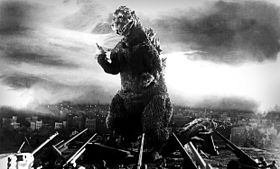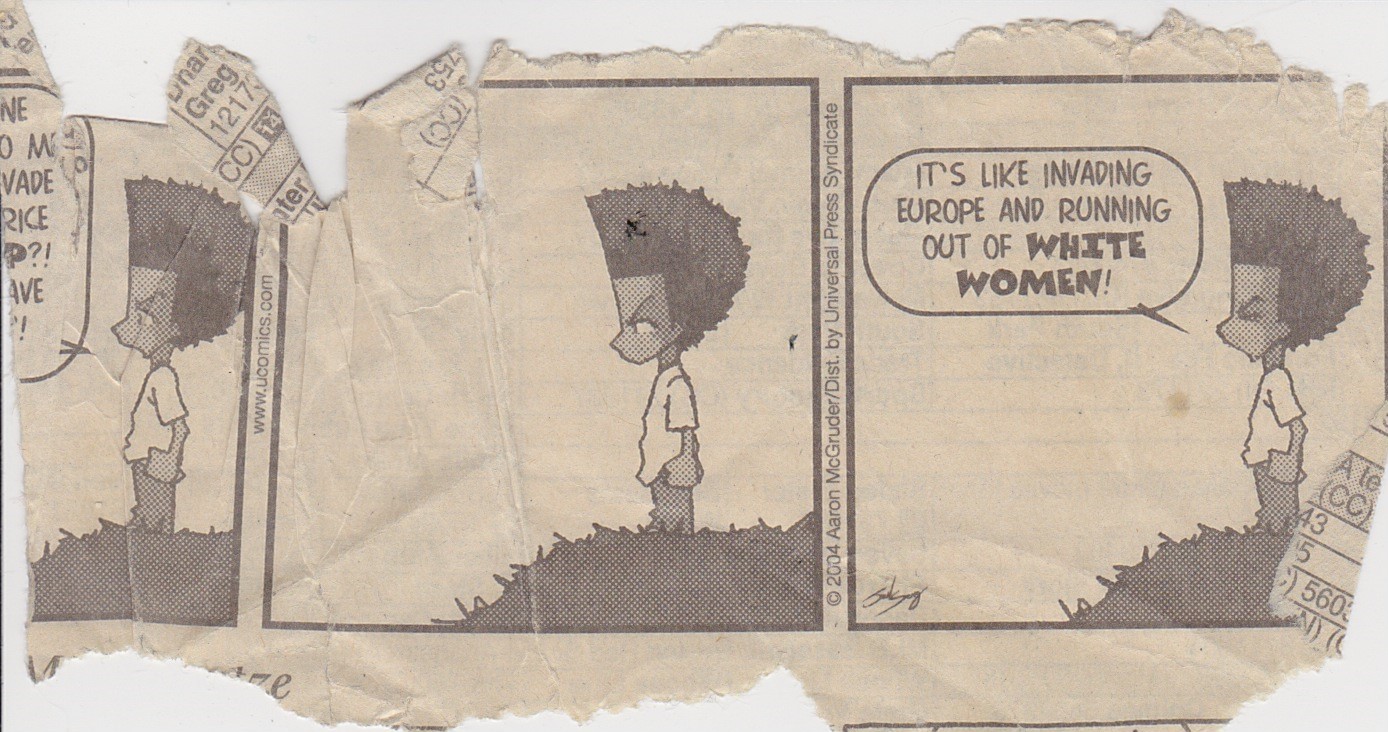 Columbine happened not long after I graduated from high school, and it disturbed me to the core. While it wasn’t the first such mass shooting, it was the one that slapped me awake. Nor did it seem outside the realm of possibility for it to have happened in the school I had just graduated from. After all, there weren’t (and aren’t) all that many dissimilarities between a suburb in Minneapolis and a suburb in Denver.
Columbine happened not long after I graduated from high school, and it disturbed me to the core. While it wasn’t the first such mass shooting, it was the one that slapped me awake. Nor did it seem outside the realm of possibility for it to have happened in the school I had just graduated from. After all, there weren’t (and aren’t) all that many dissimilarities between a suburb in Minneapolis and a suburb in Denver.
The following year, I began working through my confusion in the way I knew best, by writing. I didn’t really know what I was going to say, just that something needed to be said. What can lead someone to go to a school full of people they know and try to kill them? What does this say about us, the society where this is possible? I was horrified by these questions and not particularly sure if (or what) my answers would be, but I was determined to try.
It took a long time to write my book. A long time. Part of this was needing to figure out my writer self, but part of it was finding what needed to be said. Community was a part of it, some wise part of me seemed to know (I knew it before I even realized how true it was). These things don’t just affect one or two people, but everyone: the school and its local area, the state, the country, even the world.
So I had to discover my fictional community and write stories about it. From one character and his relationships, I found another and another, until I found I was slowly uncovering an entire tapestry of stories, one that I could never completely reveal (or could be written about in just one book). But I had, at last, a book that suggested at that larger collection of untold tales.
In all these years since I began writing, things have only gotten worse. As the New York Times noted, the shooting in Benton, Kentucky, on January 23rd was the eleventh of this year. The eleventh, just twenty-three days in.
And we’re past that count now in February, aren’t we?
For all that regularity, however, we’re no better at dealing with these things. We may make our schools—those who work there and study there—undergo active shooter drills, but as far as actual prevention, or coping goes? If anything, we’re regressing. We are so inured to the fact of these things that we almost have our responses down pat. The battle lines are drawn, and it’s World War I trench warfare at its worst.
In all the tumult of one side denouncing the other, however, I don’t see as much discussion of the most important aspect of the problem. Gun control certainly is a part of it (and there is a possible bridge between responsible gun ownership and better regulation of these potentially lethal weapons), and mental health may be as well, though the connection between that and mass shootings is debated.
The thing we so often miss is what I uncovered in trying to write about these tragedies: community. And while I do see people tweeting and writing about the heroics of those trying to save others, and about the lives of those involved, those narratives tend to be buried (or used for further ends). Particularly the day-to-day lives of those affected, before and after the event everyone is so focused on. Because those stories never end.
Are these stories ever connected, too. We all live in communities, surrounded by other people, and each of us has a propensity for good or bad, love or hate. And try as we might, we cannot legislate love. We cannot dictate how people interact with each other, lest we become dictators ourselves. Boundaries or guidelines may be suggested by laws or constitutional amendments (or under some other organizational name), but how each of us relates to those others in our community is what really decides the outcomes of our stories.
I know, I’m tired too. I’m weary of the sudden spike in my chest whenever I hear of another shooting, knowing that we’re undergoing yet another trauma so common that it has become difficult to register.
Even as we hear about them, though, think on how you relate to those in your community, be it locally, nationally, or internationally. As you argue your point of view (goodness knows we all have them), think long on how you are arguing for it, and the implications of arguing for it. Because the root, the very root of these tragedies is anger and lack of empathy, no matter how one arrives there.
If you’re going to pull the trigger and kill another human, let alone many other humans, you must see them not like you, but as a problem worthy of hating and eradicating. That the only solution is their removal, as quickly and dramatically as possible.
The first step in response for all of us then, no matter how foolish, no matter how rose-tinted glasses it might seem, is to love. To reach out. Anything else is a step back into the abyss.





2 thoughts on “On School Shootings and Stories That Never End”
Man, I don’t know. I wrote a school paper editorial about Columbine, which happened a month before my junior year of high school ended. That was mainly a reaction to the ridiculous statements that video games and movies were to blame. I argued that they had nothing to do with it, though I couldn’t offer many answers beyond parents and other authority figures doing a better job of monitoring kids to make sure they weren’t going off the deep end.
About a decade later, I read Dave Cullen’s Columbine and Martha Stout’s The Sociopath Next Door, and realized that Eric Harris was a sociopath with a troubling history, who actually was sent to counseling and anger management, and was able to manipulate everyone around him into thinking he was remorseful. Meanwhile, he was writing in his private journals about how he essentially viewed all other humans as bugs that he deserved to squash. He had parents and authority figures around him trying to help him, but his mind was essentially reptile, and incredibly adept at fooling them into thinking he was human. Even early reports that he was bullied showed that, if anything, he was the bully. That kind of put me into a , “Well, crap, he was inherently evil, and nothing anyone could ever do would have made a difference.”
I think in the ensuing decade, I’ve become even more cynical about human nature. However, I think there is a fairly easy solution to this problem that has worked literally everywhere else in the developed world: get rid of the guns. Australia did, and they haven’t had a shooting in 22 years. Their society is even more rooted in the idea of the wild frontier than ours is…I mean, they were settled by convicts. And they still hunt with shotguns and hunting rifles…they just don’t pass out hand guns and assault rifles like candy. I don’t even think this is a political issue–it’s just a matter of decency.
I think there will always be situations as you describe, where we must all put as much love into the world as we can, to make sure those who are hurt are heard and healed. I also think there are a small number of people out there who are near inherently evil, regardless of nurture. However, whether damaged and overlooked, or simply evil, no easily available guns = no tool to mass murder. It’s a lot harder to kill a lot of people with a knife or even a shotgun than it is an AR-15 with a modified stock.
I get what you mean. While it’s important to note that the majority of the shooters we’ve had were not mentally ill (and as broken as a person has to be to want to kill as many other people as possible has to be, that’s not a mental illness on its own), but I also am really aware of Eric and Dylan at Columbine, both of whom were probably dealing with mental illness. The sad thing about Dylan is how he probably wouldn’t have done what he did without Eric roping him in and feeding him in that direction (I read Cullen’s book as well). I don’t want him to have committed suicide, either, but that would have been better than killing others like he did first.
There are definitely more Eric Harrises in the world, and will be (and I agree that trying to pin it on bullying or something like that is missing the clear evidence of who he was). It’s… more than dismaying to know this. Still, I can’t go all Heart of Darkness with everyone, even if we all have some potential for darkness.
What brings me back to community with this problem, again and again, is that even with mental illness in the picture, it’s the disconnect from others that allows for murder and mass murder. Maybe I’m wrong in identifying it as the central problem, but it’s got to be close. It’s such a complex issue, I’d be hesitant in pointing too much to any one thing. Even the Australia example you give is making me wonder after I heard the amount of guns in Australia has increased and returned to the same numbers they had before their mass buyback twenty years ago. Are there some other hard to pin down cultural/societal aspects to Australian culture affecting this? But I admittedly don’t know enough about the types of guns they have and other restrictions to be able to pursue this further at the moment.
I’m also not trying to bypass better gun control with all this. I’m not against responsible gun ownership (I’ve known plenty of hunters, etc.), but that means better regulation than we have now. I really liked a recent Atlantic article about the 2nd Amendment and how it’s been historically interpreted and can/should be interpreted (it’s not an all or nothing opening of the floodgates… every right we have has boundaries). I’ll put in the link below. But I think part of what is holding back better gun control IS a lack of empathy and community. If someone is so far down the “I have a right to my guns!” that they can’t see how those boundaries need to be reasonably licensed and overseen, like so many other parts of our lives (cars, prescription drugs, etc.), then they’re prioritizing guns over their fellow humans. That’s the best argument the students at Marjory Stoneman have–it’s not a democrat versus republican issue, it’s a human one.
To bring my circuitous thoughts to a close, I do agree and think the most concrete thing we can do is smarter gun control: it should be much harder than it is for these shooters to get their guns. Even if it doesn’t stop all of them, at least we’re not enabling them like we are currently.
Here’s that Atlantic article (framed around responding to Clarence Thomas frequent gun control gripes):
https://www.theatlantic.com/politics/archive/2018/02/clarence-thomas-guns/553910/?utm_source=twb